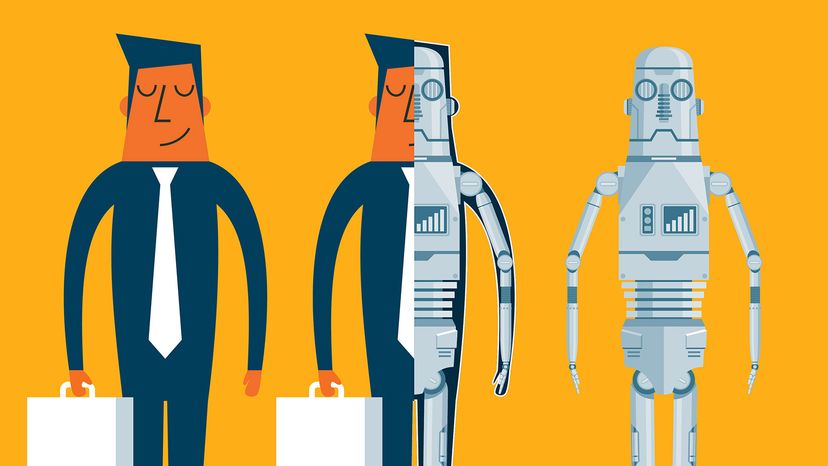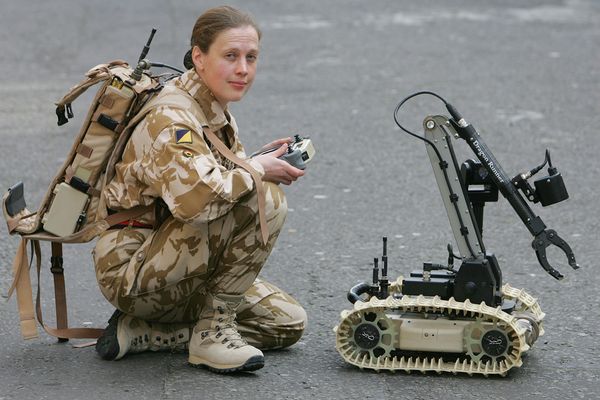
Economists warn that we're on the brink of a Fourth Industrial Revolution, an unprecedented workplace disruption powered by robotics and artificial intelligence. Not only will smart machines replace human workers in blue-collar manufacturing jobs, but they'll also wait tables, deliver packages, and analyze legal documents.
The global consulting firm McKinsey & Company found that 51 percent of work activities in the United States are "most susceptible to automation," namely jobs that are physical in nature and performed in a highly structured and predictable environment. (Amazon fulfillment centers, anyone?) McKinsey predicted that "half of today's work activities could be automated by 2055."
Advertisement
The fear of robots taking our jobs feels real, but anxiety over the Fourth Industrial Revolution extends beyond widespread unemployment. The U.S. and other governments rely heavily on income and payroll taxes to fund popular federal programs like Social Security and Medicare, and to pay for national defense, education and more.
In fact, 86 percent of all federal tax revenue in the U.S. comes from income taxes and payroll taxes. So, if more and more humans are put out of work by robots, not only are people out of a job, but the government also is out of the tax dollars that it uses to pay for food benefits, job retraining and other programs that serve the unemployed.
The rise of the robots is nigh, we're told, and solutions must be found to stem a potentially dire humanitarian crisis. One way to slow the spread of automation and keep tax dollars flowing into the government, some argue, is to tax the robots.
None other than Bill Gates, the billionaire founder of Microsoft and tech optimist, floated a robot tax in a 2017 interview with Quartz.
"Right now, the human worker who does, say, $50,000 worth of work in a factory, that income is taxed and you get income tax, social security tax, all those things," said Gates. "If a robot comes in to do the same thing, you'd think that we'd tax the robot at a similar level."
While it would be difficult to decide exactly which machines to tax — is an ATM taxed the same as a robot that assembles Teslas? — there are other ways to tax automation. In South Korea, for example, which leads the world in robot workers (710 industrial robots per 10,000 workers in 2017 compared to the global average of 85), the government got rid of a tax deduction on capital investments in automation.
Advertisement
